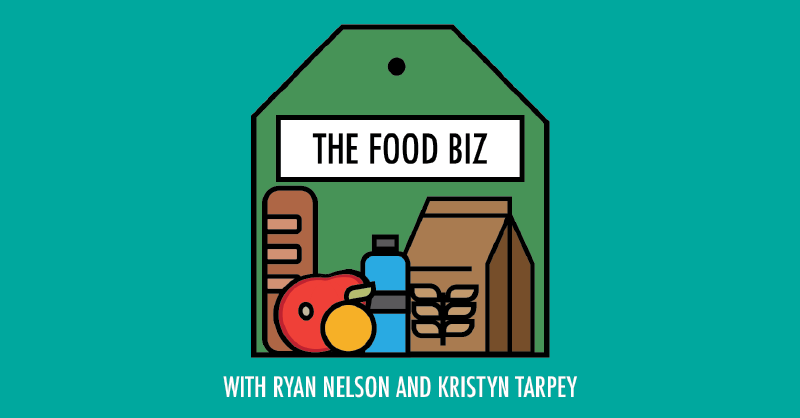Commodity Blog
Oct 20 2021
The Food Biz Episode 13 Recap: Whether the Weather is Fine with Kevin Marcus

On this week’s episode of The Food Biz, hosts Kristyn Tarpey and Ryan Nelson are joined by Kevin Marcus, President, and CEO of Marcus Weather. Marcus Weather specializes in the quantification of short, medium, and long-range weather on crop yield and energy demand.
The three discuss climate patterns in the Pacific Ocean, severe weather events, supply chain disruptions, and climate change.
Kevin kicks off the podcast by giving some background on his role in Marcus Weather and how he got started in the industry. Kevin explains that he’s been in the weather industry for over 40 years. As a child, he was fascinated with the weather and agriculture. He followed that passion into college, earning a Bachelor’s Degree in Meteorology from Penn State University with a minor in horticulture and later earning a Master’s Degree in Agronomy from the University of Maryland. He joined Earth Satellite Corporation (now Maxar) in 1980 and spent the first 20 years of his professional career with the commercial services group known as Cropcast. Kevin formed Marcus Weather services in 2001 exclusively for commodity hedge funds and food processors seeking an edge in trading and hedging.
The three then jump into a discussion on El Niño, La Niña, and severe weather events. Kevin explains the differences between El Niño and La Niña. El Niño is the warm side of the tropical Pacific ocean, and La Niña refers to the cooling of the same area. We typically see better grain production in years of El Niño, because of the warm, moist conditions emanating off the south pacific. With El Niño we typically see a better distribution of rainfall and more moderate temperatures. With La Niña, we typically see more extreme conditions of warm and cold. We also see very sharp transition zones between wet and dry. For example, there could be a drought in North Dakota and flooding conditions in Illinois.
The conversation progresses into a discussion on Forest Fires. Kevin explains that the number of forest fires we saw this past summer was in the mid-range, however, due to poor forest management these fires are burning hotter and are smokier because there is so much kindling to keep the fires going.
The conversation transitions to a discussion on supply chain disruptions. Kristyn asks Kevin what he thinks the most significant impacts have been holistically from the weather events in the Golf. Kevin answers that luckily Hurricane Ida hit when we had the least amount of barge traffic in the Golf. However, there are reports that some of the fertilizer production had to be taken offline. This, combined with other issues, such as disruptions with shipping, is creating a major problem for fertilizer next year. As a result, Kevin said he is already seeing a decrease in how much corn may be planted next year. These disruptions also impact chemical controls, fungicides, and herbicides, which can lead to more problems with weeds and insects. So even under ideal weather conditions, Kevin said we may see lower yields next year.
Kristyn then asks Kevin how this growing season has been for corn and soybeans. Kevin says that the genetics of the crops this season is remarkable and they can produce quite well. However, we haven’t been seeing the improvement in corn yields that we have been seeing with soybeans. Looking ahead to 2022, Kevin says it does not look like we are going into an El Niño, therefore we are expecting normal to below normal rainfall for 2022. Kevin said that this suggests we are going to see lower yields.
Lastly, Kristyn asks Kevin about his thoughts on climate change. Kevin said he believes that the climate is always changing and the debate should instead be “what’s the driver?”. With climate change, you need to find out what is a natural cycle and what is man’s contribution. Kevin believes that 99% of climate change comes from natural cycles.
This episode covered a lot of ground, so make sure to listen to the entire episode on Spotify or in the Apple Podcasts App! While you’re there, don’t forget to subscribe. Also, feel free to reach out to us by email at news@barchart.com with any discussion topics, questions, comments, or overall feedback; Ryan and Kristyn would love to hear from you!
Barchart Updates
